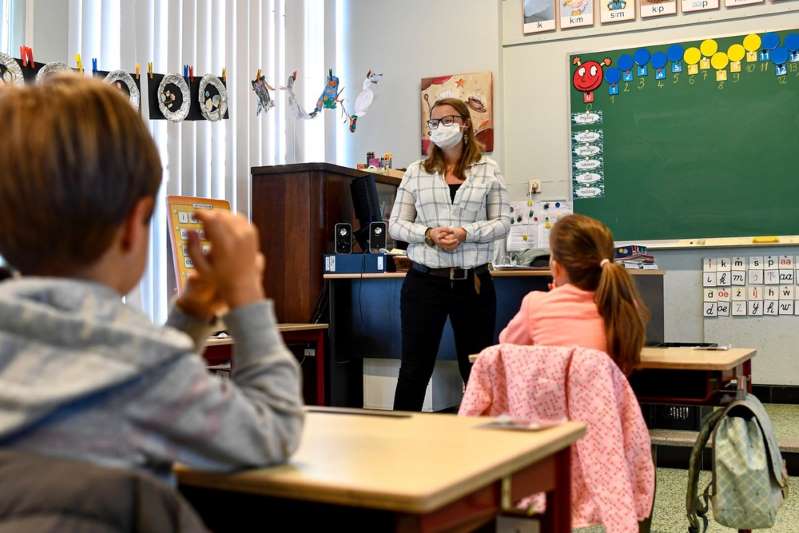If schools in Flanders have to close again during the coronavirus pandemic, it is up to the parliament to make that decision, said Flemish Education Minister Ben Weyts.
In the Chamber on Wednesday, Weyts said that closing schools "is the very last thing" he wants to do.
"The right to learn is an essential fundamental right," he said. "If a decision has to be made to close schools ever again, then it is up to the parliament to do it."
During a meeting between Weyts and the umbrella organisations for education, it was decided that there will be no cooling-off week for primary schools (meaning classes would only take place digitally) before the carnival holidays.
For secondary school pupils, however, this cooling-off week had already been scheduled during the previous meeting. They will not physically go to school the week before the holidays, reducing school-related mobility for a total of two weeks.
Related News
- Close schools to avoid third wave with UK variant, expert warns
- Nearly 1 in 5 new infections detected in children and teenagers
- Smaller bubbles, 1 hobby: agreement reached on stricter rules for children
Primary school pupils, however, will still have to go to class in person that week, despite the increasing number of detected infections among young children.
They will get fixed seats in the classrooms and during lunch breaks, to make Belgium's new testing policy easier. Since this week, primary school children who, in class or during lunch, sat next to a child who tested positive will also be considered high-risk contacts, and be tested on day 1 and 7 of their quarantine.
Recently, several experts have called to close schools in light of the more infectious UK variant, with OECD education expert Dirk Van Damme calling schools "an important transmission chain” for the virus.
“Children who do not get sick themselves can still pass on the virus. We have to take measures to avoid stumbling from a second wave into a third one," he said, stressing the importance of breaking that chain sooner rather than later.
On Tuesday evening, Belgium's different governments agreed to further limit extracurricular activities for children - a decision that still needs to get the final go-ahead by the federal government - partly in an effort to keep schools open as long as possible.
"By keeping schools open, we are not choosing the easiest way, but the most difficult way," Weyts said.
Maïthé Chini
The Brussels Times

